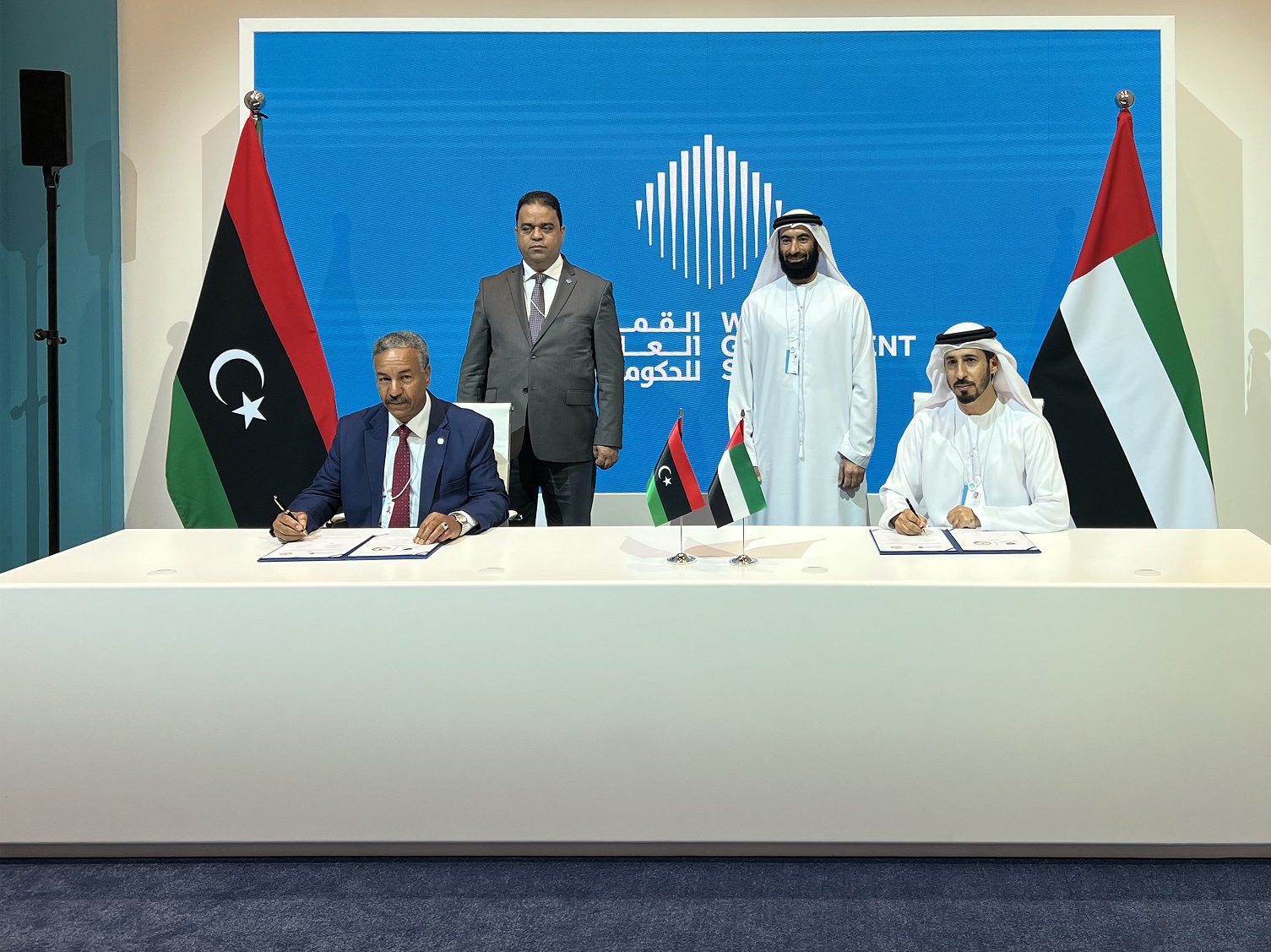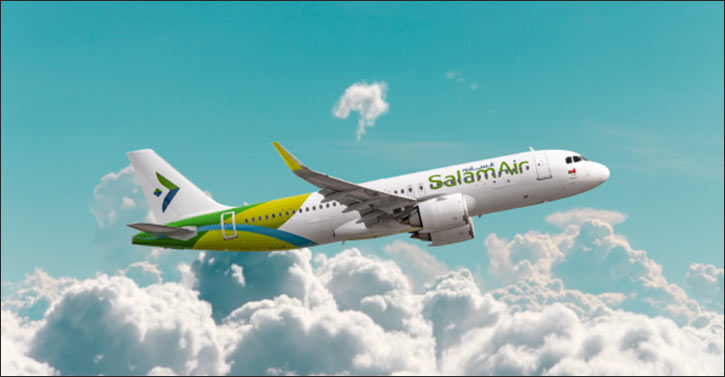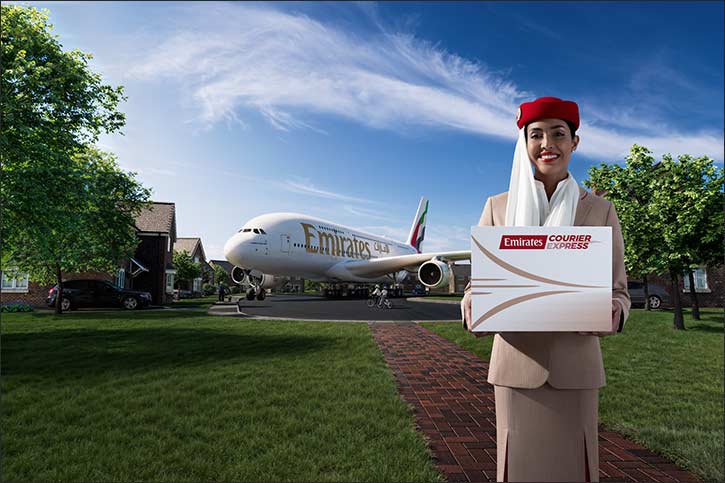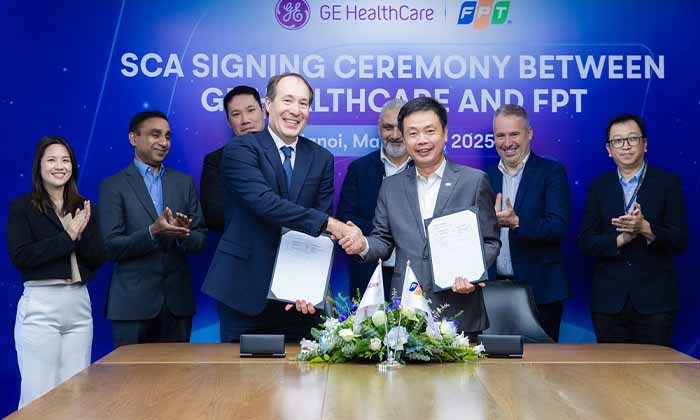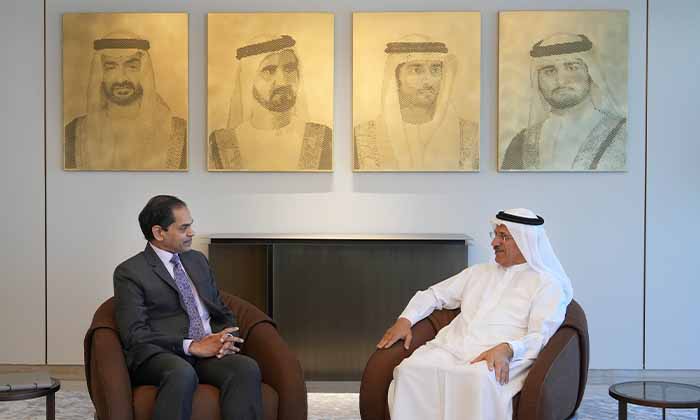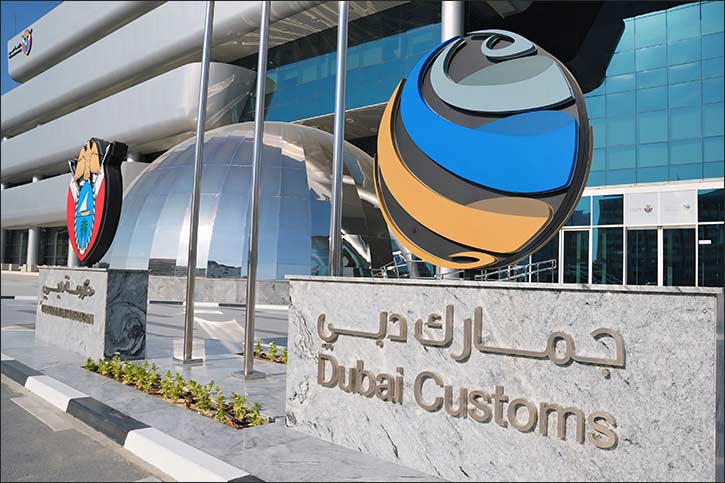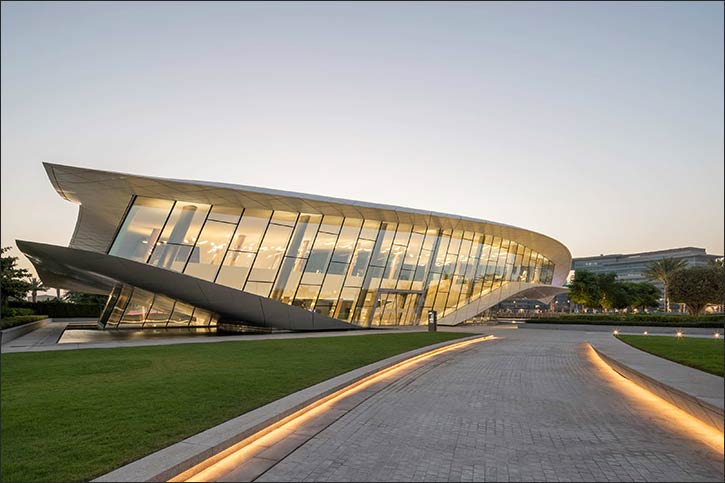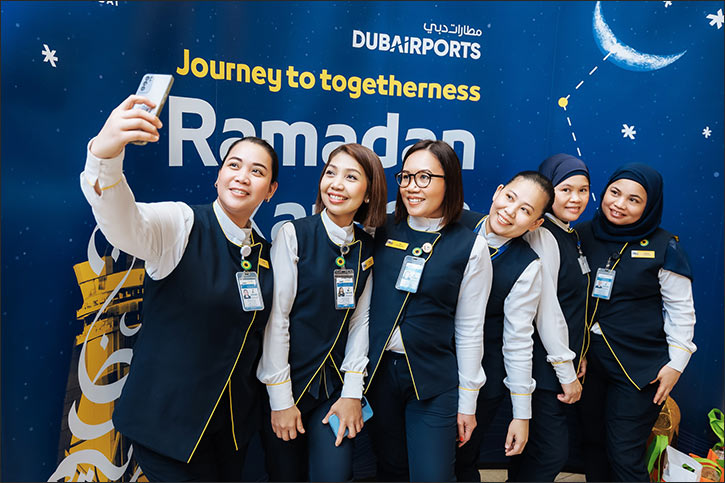The Mohammed Bin Rashid School of Government (MBRSG) has signed a Memorandum of Understanding with the Ministry of Labour and Rehabilitation in Libya’s Government of National Unity on the side lines of the World Government Summit 2022, taking place at Expo 2020 Dubai.
The agreement aims to strengthen collaboration towards training and upskilling employees, in addition to implementing an integrated set of policies and standards to accomplish strategic objectives, such as empowering human resources; enhancing competencies across the labour market; promoting quality and transparency standards; and driving government excellence through research studies, as well as educational and training programmes.
The MoU was signed by H.E. Dr. Ali bin Sebaa Al Marri, MBRSG’s Executive President, and H.E. Dr. Adel Ali Al-Aqbi, Director of the International Cooperation Office at the Ministry of Labour and Rehabilitation in the Government of National Unity in Libya, in a ceremony attended by Libyan Minister of Labour and Rehabilitation H.E. Ali Al-Abed Al-Rida, H.E. Abdulla Ali bin Zayed Al Falasi, Director-General of the Dubai Government Human Resources Department (DGHR), Chairman of MBRSG, H.E. Sofian Salem Al Shibani, Ambassador of the State of Libya in the United Arab Emirates, and Prof. Raed Awamleh, Dean of MBRSG, along with officials from both entities.
H.E. Abdulla Ali bin Zayed Al Falasi said: “In line with our pioneering role in upskilling human resources, coaching the leaders of tomorrow, and spearheading the development of the entire system of government and labour market in the UAE and the region, the Mohammed Bin Rashid School of Government is committed to expanding its network of partnerships and ensuring continuous collaboration with various stakeholders. Our aim is to exchange expertise and share our advanced knowledge in government administration and public policy.”
“The Memorandum of Understanding reflects our mindset and approach, which are rooted in cooperation and partnership,” H.E. Al Falasi added. “We hope this collaboration will help shape a promising future for our human capital, which is certainly the region’s most valuable asset and the most effective instrument to advance Arab countries and boost their competitiveness now and in the future.”
For his part, H.E. Ali al-Abed al-Rida noted: “The Mohammed Bin Rashid School of Government is a leading knowledge platform in the region, and with that in mind, we are committed to collaborating with MBRSG, along with numerous prestigious academic institutions, in order to exchange knowledge and expertise. We look forward to seeing this reflected in the Libyan workforce and to qualifying Libyan employees in line with market requirements. This, in turn, allows us to accomplish our national plans and drive economic and social growth in the future.”
The MoU will see the two parties collaborate to promote further cooperation, communication, and coordination, in addition to developing and advancing each entity’s services. The two will facilitate the exchange of ideas for creative and innovative programmes, and then work together to develop their respective plans and projects.
The cooperation between the two parties will also include training and upskilling employees of the Libyan Ministry of Labour and Rehabilitation, honing their skills in various areas of common interest by launching training programmes and workshops, or enrolling them in MBRSG’s programmes. The MoU also provides for the exchange of knowledge on specialised policies and strategies, corporate governance, risk management, knowledge management, research, studies, and data analysis. The two parties will also exchange resources such as library content and digital information sources.
Other areas of collaboration include management consultancy, scientific and knowledge field trips, government best practices, and research-based decision making. The two parties will also hold meetings, discussions, workshops, seminars, and conferences to exchange ideas and propose innovative programmes to further strengthen cooperation.
-End-
